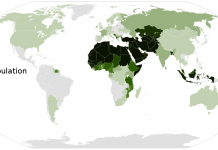Article 19 of Pakistan’s constitution gives every citizen the right to freedom of speech and expression. This right is unconditional and no restrictions are imposed on it in the constitution.
The same article also guarantees freedom of the press – subject to reasonable restrictions imposed by law in the interest of the glory of Islam or the integrity, security and defence of Pakistan, friendly relations with foreign states, public order, decency and morality, or in relation to contempt of court, commission of or incitement of an offence.
The restrictions are quite extensive and not defined. For instance, many things can be interpreted to fall within the domain of the “glory of Islam”, or “the integrity, security or defence of Pakistan”.
Our legal system is the legacy of our colonial rulers. They were usurpers and thus had to rule with an iron hand. They gradually gave the Indian subjects a few rights, but routinely imposed conditions on these rights to keep the populace in control. They used the same principle to control criticism of the judiciary, by imposing a strict regime of contempt law, which entailed both imprisonment and hefty fines.
We inherited this legacy, but instead of doing away with it altogether or at least toning it down, we kept strengthening it. In 1976, the Z A Bhutto government introduced the Contempt of Court Act (No LXIV), which repealed the Contempt of Courts Act 1926 (No XII). The concept of contempt of court was also introduced in the constitution under Article 204.
The Z A Bhutto regime changed article 204 in 1976 through a fifth amendment, much to the chagrin of the opposition. It later became a major demand of the opposition to restore the original article, which was introduced by the military dictator General Zia in 1985, when the eighth amendment was passed. At present, clauses 2 and 3 of Article 204 are the same as those in the 1973 constitution; however, an explanation of clause 2 from the original constitution was not restored, which stated that: “Fair comment made in good faith and in the public interest on the working of the Court or any of its final decisions after the expiry of the period of limitation for appeal, if any, shall not constitute contempt of the Court.”
In 2003, the General Musharraf regime replaced the 1976 Act by the Contempt of Court Ordinance of 2003, which was promulgated first on July 10 (No. IV) and then on December 15 (No. V). A similar ordinance was also enacted in 2004 (No. I).
The PPP government, led by Asif Zardari, had a bitter experience with the law of contempt as its prime minister, Yusuf Raza Gilani was disqualified under this law. Because of the apprehension that even Gilani’s successor may be disqualified, as he was not taking action to retrieve the money in the Swiss bank accounts, the government passed an act (No XVIII) to replace the 2003 ordinance. When challenged in the Supreme Court, the attorney general told the court that the motive was to ensure that democratic order continues to prevail.
In August 2012, a five member bench of the Supreme Court, headed by the then CJ Iftikhar Chaudhry, repealed the Contempt of Court Act 2012 promulgated by the PPP regime and reinstated the 2003 ordinance. The court said that it is one of the recognised principles of jurisprudence that laws specific to individuals cannot be promulgated because they cause injustice in society.
If readers are finding this confusing then they are not alone. The Supreme Court declared the 2012 Contempt of Court Act unconstitutional and void, but the Ministry of Law’s website continues to list it as a valid law. Some lawyers even continue to file petitions under this law – and the courts consider them.
It has been four years since the law was declared to be void and parliament has been unable to enact a new law. If and when parliament enacts such a law to replace the 2003 ordinance, which remains valid according to the Supreme Court, it is important to makes it as mild as possible in order to protect the right of freedom of speech of Pakistan’s citizens. Except for failing to comply with an order of the court, there is no reason that persons should be imprisoned.
Currently, under section 3 of the 2003 ordinance, “whoever disobeys or disregards any order, direction or process of a court, which he is legally bound to obey; or commits a wilful breach of a valid undertaking given to a court; or does anything which is intended to or tends to bring the authority of a court or the administration of law into disrespect or disrepute, or to interfere with or obstruct or interrupt or prejudice the process of law or the due course of any judicial proceedings, or to lower the authority of a court or scandalize a judge in relation to his office, or to disturb the order or decorum of a court, is said to commit ‘contempt of court’”. Any person who commits contempt of court is punishable with imprisonment for up to six months, a fine of up to Rs100,000, or both.
“Bringing the authority of a court or the administration of law into disrespect or disrepute, or to interfere with or obstruct or interrupt or prejudice the process of law or the due course of any judicial proceedings, or to lower the authority of a court or scandalize a judge in relation to his office”, are terms that are subject to wide interpretations.
The least that a new law on this subject can do is take out the imprisonment provisions in relation to the terms cited in this paragraph. The language can also be toned down. The judiciary is a strong institution and can withstand criticism, just like all other institutions of the state. This is in conformity with the spirit of our fundamental right of free speech.








Comments are closed.